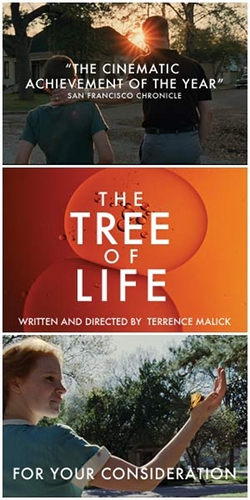Review: Footloose (2011)
Some things in life will never change, like the desire in youth to break free from the overpowering shadow of their elders and become independent, or wanting to create something new and better for one’s society, or the burning need to dance out your rage!
The reprisal of 1984’s Footloose, directed by Craig Brewer (Hustle & Flow, 2005), may seem like a copy-and-paste version of the original, but this would be the perfect time to say that if it isn’t broken don’t fix it. The themes and plot of Footloose have held up extremely well over the years. This may be partly due to it being a Broadway show (keeping it continuously in the public’s eye), but what is more likely is that this timeless story will never fail to resonate with an audience, specifically a young one.
Teens will always feel frustrated and suppressed. The story of Ren and Ariel trying to lift the needless ban on dancing and loud music in the town of Bomont in order to enjoy their life and youth is something every young adult will sympathize with. To fight for the right to live, make mistakes and ultimately discover one’s self is certainly a noble cause.
If you enjoyed the first film then you will enjoy the remake. While key scenes and lines are word for word, many moments have been changed slightly to either freshen the film up or attempt to modernize it. For the most part, all of these adjustments are for the better.
A discussion of Footloose could become nothing more than a comparison game: Kenny Wormald vs. Kevin Bacon, Denis Quaid vs. John Lithgow, or Julianne Hough vs. Lori Singer. There are small details that may aggravate a long-time fan of Footloose, but when the scorecard is filled out and all the pluses and minuses are added up, both films come out even.
Footloose (2011) had the potential to go overboard. With films like Step Up (2006) and Stomp the Yard (2007) gaining popularity for their exhibitionism, Footloose (2011) doesn’t let its dancing overpower the story. It is made very clear that this is a cast of incredibly skilled professionals without it being excessive. Watching Wormald’s impressive acrobatics may leave audiences feeling teased, but, as every mother has said at some point, too much of a good thing will make you sick.
While Wormald displays a gross amount of skill, he falls short with his emotional delivery. The passion and charm necessary to bring life to a character like Ren was absent in Wormald’s interpretation. On the other hand, Julianne Hough improved the character of Ariel, adding more spunk and reckless attitude. Unfortunately, a lot of Ariel’s most wild and dangerous moments have been replaced with more diluted ones, lessening the impact of her rebellion.
One noticeable improvement over the original is the increased character development of Ren and Ariel. The film puts more emphasis on the car accident that took Ariel’s brother from her at a young age, and adds in the death of Ren’s mother. These impactful moments in the characters past help shape their actions for the film much better than the original.
The release of Footloose (2011) is timed very appropriate, as the United States is going through a similar cultural and economic period as it was in 1984. The U.S. was experiencing a recession, and mindsets were more on the conservative side, which caused frustration in younger generations.
Today, like in 1984, fear throughout the world has produced lots of antiquated thinking. The people of Bomont gave in to their fear as well, after the tragic car accident that killed a group of teens three years prior to the film’s events. In a society where we currently are struggling to move forward and pull ourselves out of fear, the message of Footloose rings true.
Overall, Footloose (2011) is a well constructed film. Motivations are realistic and clearly stated, acts are well defined, and characters are relatable. The dancing is delightful to watch, and Miles Teller as Willard brings a decent dose of humor to the table. This classic story has lost nothing in its reincarnation on the silver screen and will touch old and new fans alike.


















 Review: The Flowers of War (2011)
Review: The Flowers of War (2011) Review: Funny Games (2007)
Review: Funny Games (2007) Review: Osaka Elegy (1936)
Review: Osaka Elegy (1936) Review: Miss Bala (2011)
Review: Miss Bala (2011) Review: Hidden (2005)
Review: Hidden (2005)


